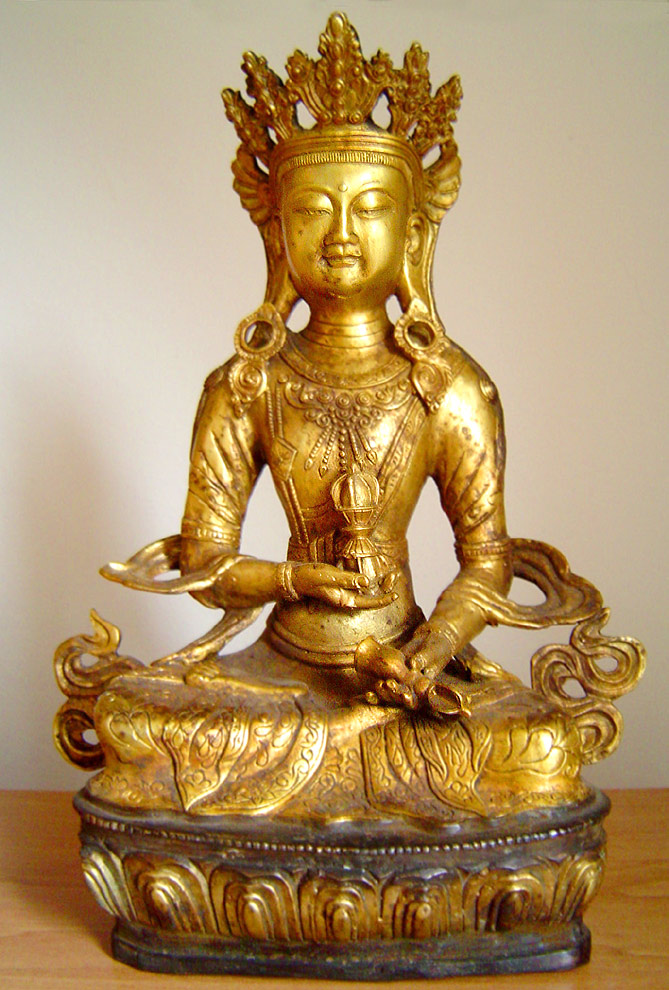 |
| Probably the wrong Buddha Credit: Robert Aichinger |
"Beethoven and Buddhism in a Japanese Religion: Culture and Cultivation in Soka Gakkai" is an intriguing article by Levi McLaughlin, published in a 2021 issue of the journal Numen. The author was a participant observer studying an orchestra associated with the New Religious Movement Soka Gakkai in Japan. Yes, really: McLaughlin can play the violin, and could therefore quite literally participate in the work of the Tokyo orchestra he was also observing as an anthropologist.
I heard of Soka Gakkai´s promotion of classical music and Western-style culture before, but I didn´t realize that it runs so deep (or at least used to until recently). Soka Gakkai´s founder Daisaku Ikeda (who passed away last year) seems to have been almost obsessed with Ludwig von Beethoven, both Beethoven the man and Beethoven the composer. Apart from Beethoven, Soka Gakkai also promoted Schiller, Shakespeare and European Romantic culture more generally. McLaughlin´s article starts out by describing a Soka Gakkai museum in Tokyo which prides itself on having obtained a piano actually owned by one of Beethoven´s students, with the museum guides enthusing that Beethoven´s fingerprints might still be on it!
Nor did I realize that this weird fixation on a 19th century European composer is far from unique to Soka Gakkai. "Everyone" in Japan were into European Romanticism, including Beethoven, during the early 20th century. This was Ikeda´s formative period. Soka Gakkai recruited most of its membership among working class people, Ikeda himself being almost dirt poor in his youth. The promotion of refined Western culture was seen as a way to secure status and upward social mobility. When the author studied this particular NRM (one of the strongest in Japan), they had scores of orchestras playing Beethoven´s music all across the country. Their training wasn´t purely musical in nature. It also included listening to a kind of ideological lectures about Beethoven´s life. The performances were seen as expressions of gratitude to Ikeda, and hence were integral parts of the religious life of the organization.
Soka Gakkai were for decades the lay arm of Nichiren Shoshu, a temple-based Buddhist group following the teachings of 13th century Buddhist priest Nichiren. In 1991, the two groups underwent an open schism, but conflicts between the Nichiren Shoshu priesthood and Ikeda apparently go back to the 1970´s. One of the reasons why Soka Gakkai has so many pianos at their Tokyo museum is that Ikeda supposedly garnered strength from playing his piano during the earlier conflict with Nichiren Shoshu. This has made pianos a potent symbol within Soka Gakkai. The article says relatively little about the 1991 schism, but its clear that the temple priests regarded Ikeda´s obsession with European culture as heterodox and not in keeping with Nichiren´s teachings (teachings which Ikeda also claims to uphold). For instance, Nichiren Shoshu claimed that Schiller´s "Ode to Joy" (famously set to music by Beethoven) was Christian. McLaughlin finds this ironic, since "Ode to Joy" was generally regarded as Masonic during Schiller´s lifetime and revolutionary when used by Beethoven. Interestingly, Ikeda doubled down on Beethoven after the schism with the head temple, suggesting that the Romantic or "humanist" element in his ostensibly Buddhist message isn´t a minor point.
Or wasn´t. The author strongly implies that the Beethoven-mania gradually became less prominent as Ikeda became older and no longer could exercise complete control of Soka Gakkai. This seems to have happened within the last 15 years or so. What will replace it now when Ikeda has passad away nobody really knows...
Fascinating.
No comments:
Post a Comment